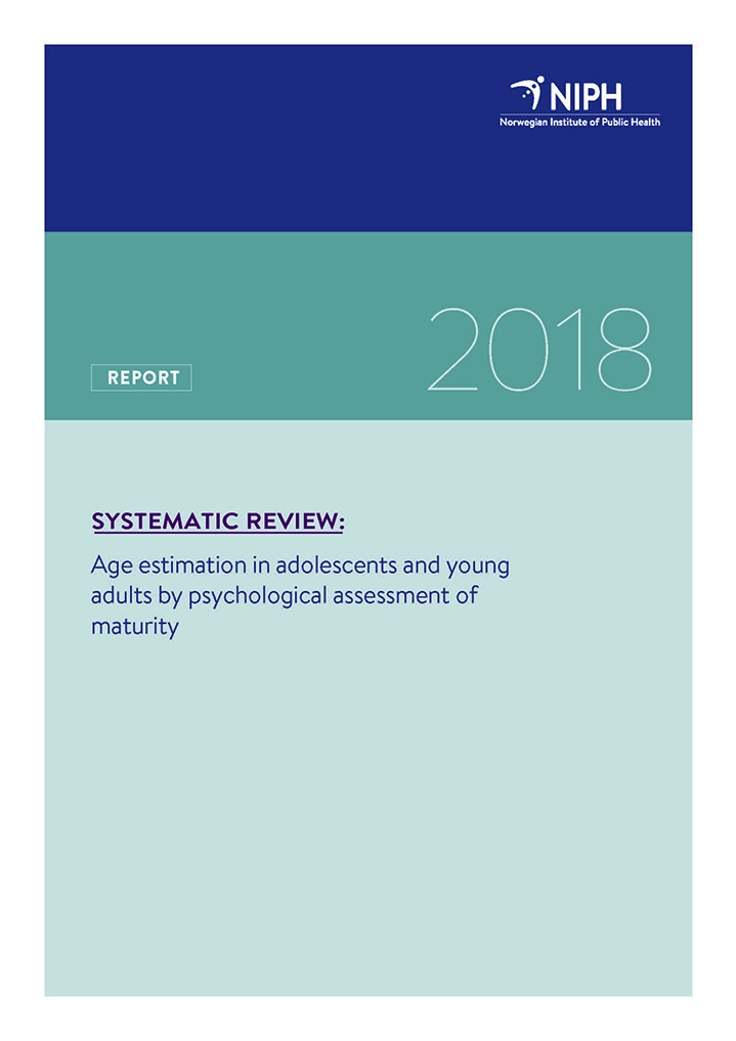Age estimation in adolescents and young adults by psychological assessment of maturity: a systematic review
Systematic review
|Published
This systematic review aimed to summarize the evidence of using psychological maturity tests for chronological age assessment in adolescents and young adults.
Key message
Age estimation of individuals with unknown age has been of considerable interest in forensic practice and research. The assessment of physical developmental stages constitutes the basis for medical age assessments. In addition to the biological changes, psychological development is often associated with chronological age in normal human development. This systematic review aimed to summarize the evidence of using psychological maturity tests for chronological age assessment in adolescents and young adults.
After a systematic literature search, we screened 3325 titles and abstracts. We considered seven references as potentially relevant and read them in full-text. However, none of the references met our inclusion criteria.
Therefore, there appears to be no available research evidence on the application and validity of psychological maturity tests for chronological age assessment in adolescents and young adults.
Summary
Introduction
Every year, young asylum seekers come to Norway without legal documentation of their chronological age. To ensure that children receive their entitled rights and that adults are not treated as children, it is necessary to estimate their chronological age. Assessments of hand-wrist and third molar teeth using radiographs have been used for age estimation in Norway for years. We have previously published systematic reviews assessing age distribution using radiographs based on the Greulich & Pyle atlas for hand-wrist skeleton, the Demirjian’s stages for the third molar teeth, CT and MRI for medial clavicular, knee and ankle ossification. Here we present a systematic review to evaluate the use of psychological tests for age estimation in adolescents and young adults.
Method
We conducted a search for studies in the Cochrane Central Register of Controlled Trials (CENTRAL), MEDLINE, Embase, Google Scholar, PROSPERO and Epistemonikos in May 2018. All available studies that have assessed the psychological maturity for age estimation in people between 10 and 25 years old could be included, regardless of language and study design. Each reference was screened by two authors independently. Studies that were read in full-text but were excluded are listed in a table with the corresponding reason for exclusion.
Results
We found 3325 titles and abstracts for screening. We considered seven references as potentially relevant and read them in full-text. However, none of the references met our inclusion criteria.
Discussion
Several psychological methods have been found to be researched in connection with chronological age, but we did not find any direct measure of using these methods for age estimation.
Conclusion
We have conducted a systematic review to collect evidence of using psychological tests for chronological age estimation in adolescents and young adults. Our systematic literature search did not find any relevant studies that met the research question and the inclusion criteria. There is a lack of research evidence on the application and validity of using psychological test for chronological age estimation in adolescents and young adults.


